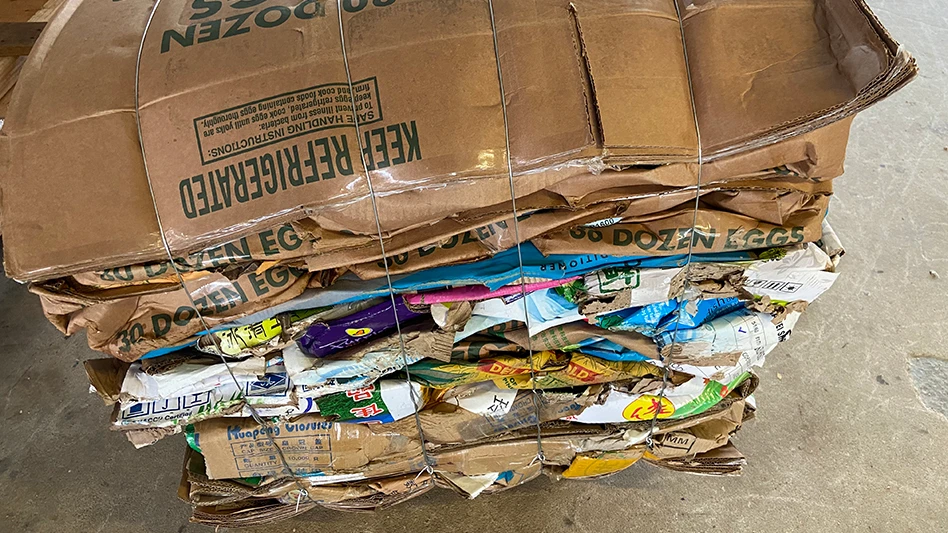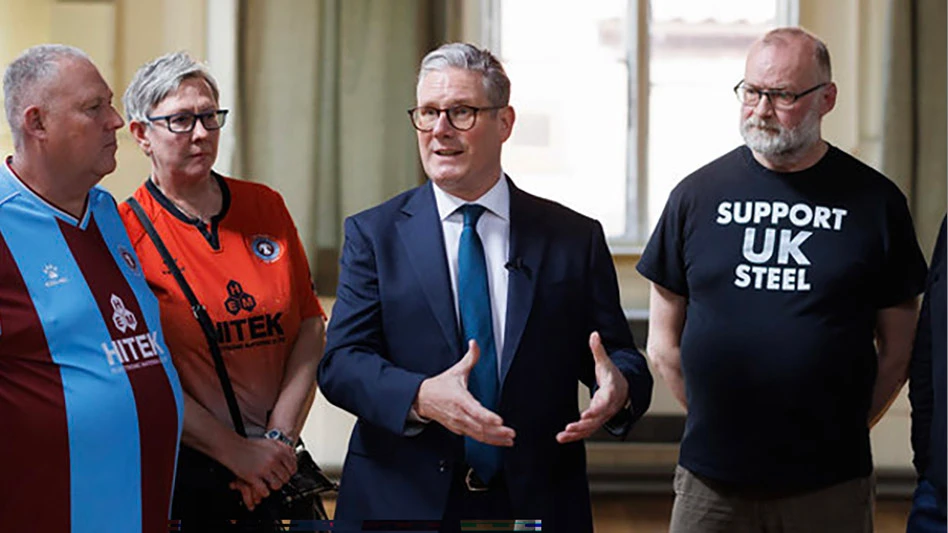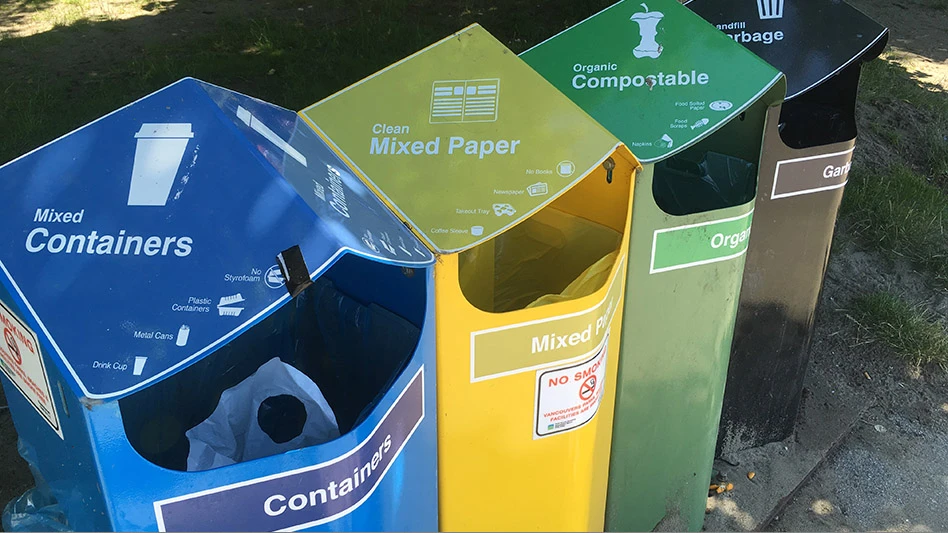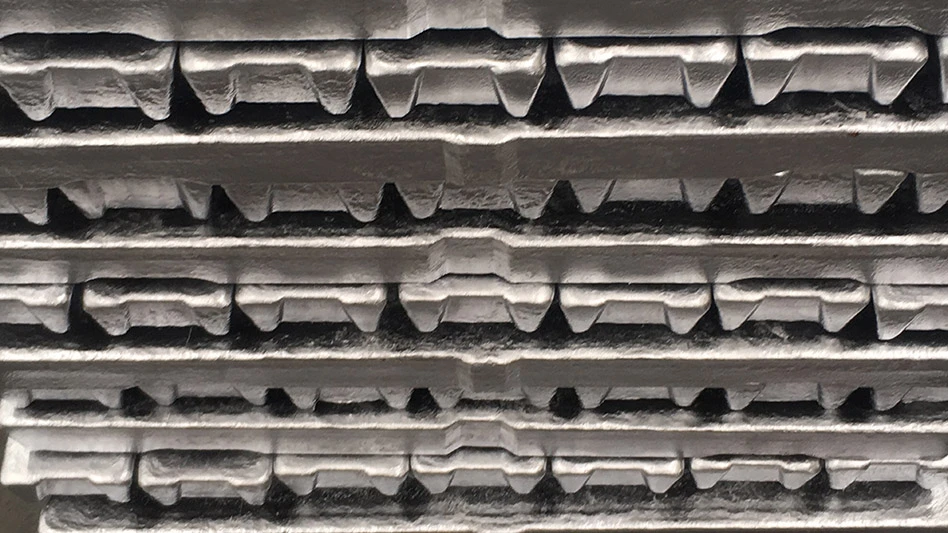Most people who call themselves pacifists do so because they deplore violence. They believe that differences among nations should be settled in a manner that removes guns, bombs and nuclear devices from the equation. The difficulty, of course, is that leaders of all nations must harbor the same beliefs if peace is to prevail.
If one accepts that war is sometimes unavoidable, then a troubling circumstance could be emerging: the potential depletion of America’s industrial infrastructure.
Government statistics are distributed in such large doses on such a regular basis that the parade of numbers can become difficult to follow. Journalists and other observers do their best to keep an eye on all these numbers and try to discern trends and patterns.
That being the case, two sets of government statistics combined to create two eyebrow-raising headlines in a recent edition of American Metal Market. On the same day, one article on scrap exports was headed "Nonferrous exports highest in six years," while a separate story on overall U.S. manufacturing was headed "Import reliance seen soaring since early 1990s."
The story beneath one headline summarized a U.S. Geological Survey study showing that America is importing a dramatically higher percentage of both mined minerals and finished metals than it was just 10 years ago. The other story noted that copper scrap, in particular, was heading overseas in record numbers (news that is no surprise to readers in that segment of the industry).
An alarmist could conclude that collectors of obsolete scrap items and stevedores off-loading imported metal at dockside may be the only people in the metals industry with a future in the U.S.
Certainly, one could take the positive view that global trade and international commercial cooperation has never been at such a high level. Nations that depend upon each other to trade goods and services are far less likely to allow differences to escalate and disrupt their entire economies. In the past, however, national pride has often been put in front of preserving trading patterns, so it is difficult to say this viewpoint offers any kind of ironclad conclusion for peace.
An opposing consideration is to determine what the worst-case scenario is if America relinquishes too much of its industrial capacity in its rush to create a post-industrial economy. If the U.S. becomes a second-tier producer of metals, machine tools and finished goods, it leaves itself open to economic damage in trade disputes, and also puts a noticeable chink in its armor as the world’s foremost military power.
In his book Why the Allies Won, British author Richard Overy explores several factors that tilted World War II in favor of Britain, Russia and the United States (including holding the moral high ground that kept the nations motivated), but is hard-pressed to find a reason more clear-cut than the industrial might of the combined three nations, with the United States clearly having the lead role.
"In 1941, America produced more steel, aluminum, oil and motor vehicles than all the other major [nations] together," writes Overy. "In 1942, long before her enemies had believed it possible, America out-produced the Axis states combined: 47,000 aircraft to 27,000; 24,000 tanks to 11,000; six times as many heavy guns. For every one vessel constructed in Japanese shipyards, America produced 16."
That industrial might continued to flourish after the war, but in the past two decades has been in retreat while fighting on several fronts: against the lure of cheap labor and new markets overseas; against environmental regulations that have driven smokestack industries offshore; against the government-subsidized efforts of other nations to retain their own industrial infrastructures.
For Americans, the worrisome disappearance of one of its greatest wartime advantages provides a reason to consider stronger support for their domestic metals industry.

Explore the September 2001 Issue
Check out more from this issue and find your next story to read.
Latest from Recycling Today
- Greenwave closes 2024 books with red ink
- Steel Dynamics nets $217 million on record shipments
- Massive Chinese steelmaking rebound recorded in March
- LME looks into sustainable metal pricing
- OnePlanet Solar Recycling closes $7M seed financing round
- AMCS launches AMCS Platform Spring 2025 update
- Cyclic Materials to build rare earth recycling facility in Mesa, Arizona
- Ecobat’s Seculene product earns recognition for flame-retardant properties






